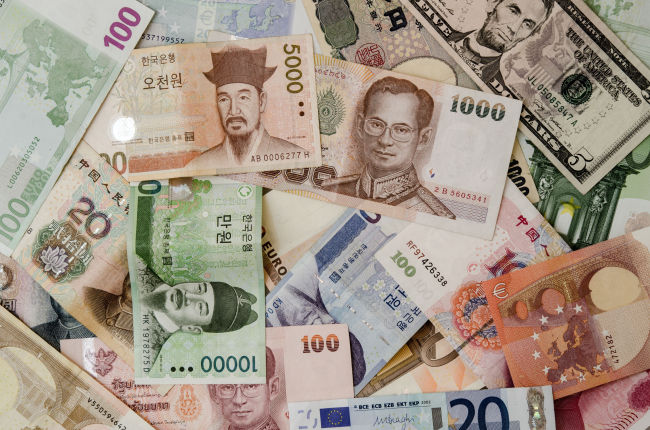[THE INVESTOR] After the US Federal Reserve signaled last week that it was close to raising its interest rates soon, economic policymakers in Seoul are on edge for its potential impact on Korea’s fragile economy.
The heightened likelihood of the US tightening as early as next month complicates the job of the Bank of Korea, in particular, which already faces a tough balancing act between the desire to support the growth and worries over rising household debt levels.

In a globally anticipated speech at the US central bank’s annual summit in Jackson Hole, Wyoming, on Friday, Fed Chair Janet Yellen gave what many saw as the strongest signal of a hike so far this year.
“I believe the case for an increase in the federal funds rate has strengthened in recent months,” she said.
Fed Vice Chair Stanley Fischer went even further to hint that a move could come in September and that there may be more than one hike before the end of the year.
As the remarks sparked worries in the emerging world for possible redirection of global funds to safer shores, Korea’s Finance Ministry announced Saturday the initiation of talks with Japan to reopen a bilateral currency swap line, which should give Korea some buffers to a sharp liquidity crunch.
“If a US rate hike does happen in September, earlier than December as many had forecast, emerging markets could see an increased financial volatility,” the Korea Center for International Finance said in a note released prior to Yellen’s remarks.
Korea saw foreign money flowing out of the country last year when the market fretted over the US rate hike. In December, the world’s largest economy ended years of the zero interest rate era by lifting the funds rate and signaled more hikes would follow.
Korea witnessed a net outflow of global funds for nine consecutive months between June last year and February this year, totaling $26.6 billion.
Having stocked up $371 billion in emergency foreign reserves and running a $12.1 billion surplus in the current account, Korea is pretty well prepared for a sudden capital outflow. But that could lead to an increased market volatility, putting a damper on the country’s fragile recovery, experts warned.
“The prospect of a policy tightening in the US sparks worries over increased costs, but it also raises expectations for the US economy becoming stronger,” said Ma Ju-ok, analyst at Hanhwa Securities in Seoul.
As a rate hike strengthens the value of its currency, it could lead to a situation of a strong dollar and a weak won, making Korean products more competitive, she said.
As for the monetary policy options, however, an increase in US borrowing costs could reduce the chances of BOK cutting its own because such a move would widen the interest rate gap between the two countries and fuel the feared capital outflow.
The BOK in June lowered its base rate to an all-time low of 1.25 percent.
“The BOK will have to wait for the Fed decision and its impact on the global and local markets before it decides on its own course of action,” said Lee Chang-sun, senior researcher at LG Economic Research Institute.
The Fed next meets on the rates on Sept. 21, before the BOK decides.
By Lee Sun-young/The Korea Herald (milaya@heraldcorp.com)




![[Herald Interview] 'Amid aging population, Korea to invite more young professionals from overseas'](http://res.heraldm.com/phpwas/restmb_idxmake.php?idx=644&simg=/content/image/2024/04/24/20240424050844_0.jpg&u=20240424200058)











![[KH Explains] Korean shipbuilding stocks rally: Real growth or bubble?](http://res.heraldm.com/phpwas/restmb_idxmake.php?idx=652&simg=/content/image/2024/04/25/20240425050656_0.jpg&u=)

